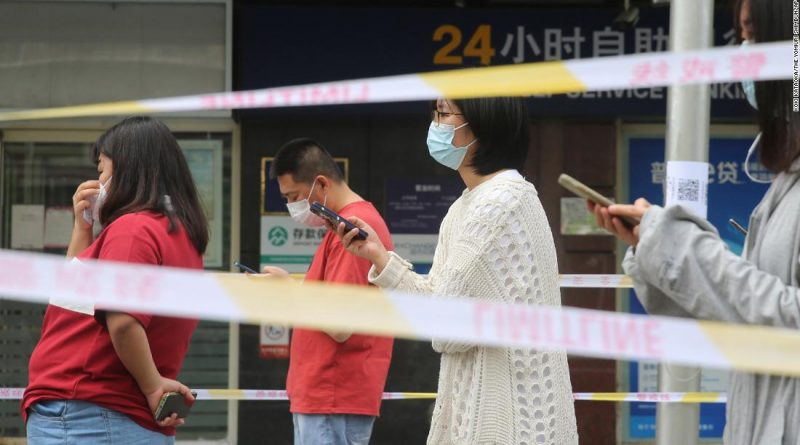Global stocks and oil prices hit by fears of a Beijing lockdown
Fears about China’s worsening Covid-19 situation are adding to the downside momentum. On Monday, Dow futures were down 305 points, or 0.9%, while futures on the S&P 500 and Nasdaq were both down 1%.
Beijing, the capital of China with 21 million residents, began mass testing over the weekend and shut down residential compounds, raising concerns that more stringent restrictions could soon be implemented in line with other Chinese cities.
“Although some parts of China have been under restrictions longer than Shanghai, Omicron’s arrival in Beijing would be an ominous development,” wrote Jeffrey Halley, senior market strategist for Oanda, on Monday.
“China is the world’s second-largest economy and has shown no signs it intends to live with the virus,” he said. “With that in mind, the likely pressure valve is going to be disruption to China’s export machine, and a cratering of consumer confidence.”
Oil prices tumbled on Monday as worries about faster US rate increases and China’s slowdown weighed on sentiment. Futures for US oil and Brent crude, the international benchmark, both fell more than 4%.
“It seems that China is the elephant in the room and markets feel that slowing China growth could materially change the supply/demand equation on international markets,” Halley said.
The pressure to contain the outbreak in Beijing comes as cases continue to grow in Shanghai. The lockdown in Shanghai has already forced many factories to suspend production and made shipping delays worse, threatening to deal a hefty shock to its vast economy and place more strain on global supply chains.
Shanghai reported more than 19,000 new cases and 51 deaths on Sunday.




